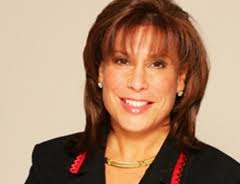The Pontifical Council for Culture has been doing some good work in promoting serious dialogue among those who work in science, the humanities and theology. You may be familiar with the Council’s “Science, Theology and the Ontological Quest” (STOQ Project). The most recent collaboration has been with NeoStem in organizing a forthcoming conference dealing with the theme of “Adult Stem Cells: Science and the Future of Man and Culture.” Regenerative medicine is now on the front burner for dialogue and research among scientists, theologians and pastors. This field of study has wide applications for work in culture, law, theology, pastoral practice, scientific research and practical application for all peoples on the planet.
The Council for Culture is working also with the Pontifical Academy for Life and the Pontifical Council for Health Care Workers to give a united front and clear witness to the importance of this topic to all interested parties.
 In a recent press conference for the November 9-11 conference, Dr. Robin L. Smith noted in her talk something I find fascinating –and you might, too. She quoted Pope John Paul II’s remarkable June 1988 address to Jesuit Father Gorge Coyne (then the head of the Vatican Observatory) where he noted the need for serious dialogue between science and faith that is comprehensive among the varied bodies of knowledge:
In a recent press conference for the November 9-11 conference, Dr. Robin L. Smith noted in her talk something I find fascinating –and you might, too. She quoted Pope John Paul II’s remarkable June 1988 address to Jesuit Father Gorge Coyne (then the head of the Vatican Observatory) where he noted the need for serious dialogue between science and faith that is comprehensive among the varied bodies of knowledge:
As dialogue and common searching continue, there will be grow towards mutual understanding and a gradual uncovering of common concerns which will provide the basis for further research and discussion. Exactly what form that will take must be left to the future. What is important, (…) is that the dialogue should continue and grow in depth and scope. In the process we must overcome every regressive tendency to a unilateral reductionism, to fear, and to self-imposed isolation. What is critically important is that each discipline should continue to enrich, nourish and challenge the other to be more fully what it can be and to contribute to our vision of who we are and who we are becoming.
The organizers of the adult stem cell conference said that while it is a high profile conference it’s audience it the non-professional, non-technical one. That is, those who are critical to the discussion but who do not have a scientific and medical background. Hence, the conference will talk about the art of stem cell research, clinical applications to patients and their families and the challenges to ethics and culture, most especially to the dignity of the human person.
Dr. Smith noted four things in her collaboration with the Holy See on this adult stem cell project:
- advancing science
- eliminating human suffering
- educating society
- encouraging collaboration.